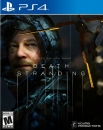Luxembourger here.
So, let's see... First year we get an extensive overview of the Stone Age, Bronze Age and Roman Empire. Second year is the medieval period and the renaissance, third year is French Revolution until the Vietnam War (which gets left out most of the time due to lack of time, ending on WW2 after-effects)
After that, there's one year of modern history, which focuses more on international relations and treaties.
Not very much about our own history early on (Luxembourg only came into existence in 963 AD, and most of our dukes were also kings of Bohemia and Emperors of the Holy Roman Empire half the time, and as a result not much is known to happen in the country itself during medieval ages.), but more and more during the period we call "Fremdherrschaft" (foreign rule), Luxembourg was part of the southern netherlands like Belgium, we got passed around between Burgundy, Habsburg, France, Spain and Austria for a period of 400 years until the congress in Vienna 1815.
From there, the focus turns much more to our country as it slowly gains more and more independence. To wit: Creation of a luxembourgish state in 1830, formal independence in 1839 (but with the Dutch king as regent and a Prussian garrison guarding the city), the Prussian garrison leaving in 1867, and the country getting it's own dynasty of grand-dukes in 1890 - and why the country is catholic:
Spoiler!
Grand Duke William IV., a fervent Protestant, married Infanta Marie-Anne from Portugal, a fervent Catholic. They decided that he would raise the boys as Protestants and she would raise any girls she bears as Catholics. Of course, he was banking on the fact that a Monarchy is generally a heir club for men, and thus the next Grand-Duke, and by extension the country, would be Protestant. Cue having 6 children together - all of them girls! And thus the rules needed to be rewritten for the Grand-Duchess to be able to access the throne, and the country became catholic.
After that part, the history gets a bit muddied with economy, as Luxembourg was a major steel producer at the turn of the 19th century until the 1970's, when it got replaced with banking, and the only events covered are both world wars.
Last edited by Bofferbrauer2 - on 14 January 2021


































































